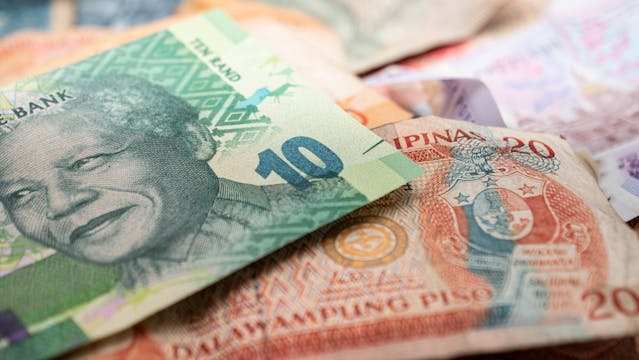Understanding Forex Trading and investment management During Trade Wars
Trade wars have become a recurring feature in the global economic landscape. As governments impose tariffs and retaliatory trade barriers, the impact ripples across multiple asset classes. Forex trading, being highly sensitive to macroeconomic and geopolitical changes, often bears the brunt of such disruptions.
Currency traders must understand how trade tensions affect market volatility, interest rates, capital flows, and investor sentiment. Whether it’s the imposition of tariffs, sanctions, or policy retaliation, trade wars create significant opportunities and risks in the foreign exchange market.
What Is a Trade War and Why Does It Matter in Forex?
The Basics of Trade Wars
A trade war begins when one country imposes tariffs or other restrictions on imports from another country, often leading to retaliatory measures. These conflicts usually aim to protect domestic industries or address trade imbalances but can escalate into broader economic disputes.
Why Currency Markets React
Currencies represent the relative strength of national economies. Any disruption to trade, such as reduced exports, changes in trade balances, or capital outflows, can directly affect a country’s currency value. Forex traders closely monitor trade related developments for early signs of volatility or trend reversals.
Historical and Recent Examples of Trade Wars
United States and China
The trade conflict between the US and China began in earnest in 2018, leading to hundreds of billions in tariffs and counter tariffs. The impact on the USD/CNY pair was significant, with sharp devaluations and increased central bank activity.
India and the United States
In 2025, renewed tensions emerged between the US and India due to India’s continued oil imports from Russia. Announcements of steep tariffs caused fluctuations in the USD/INR exchange rate and increased volatility across emerging market currencies.
Europe and Russia
Although Europe has imposed sanctions on Russia, it continues to import energy and industrial goods. These contradictory policies often send mixed signals to the market, influencing the EUR/USD, EUR/CHF, and related currency pairs.
How Trade Wars Impact Forex Markets
Exchange Rate Volatility
Trade wars introduce uncertainty, which leads to sharp and often unpredictable currency movements. Pairs linked to countries involved in disputes are particularly sensitive to tariff announcements, diplomatic breakdowns, or new policy decisions.
Policy Shifts and Central Bank Responses
Trade tensions often lead to changes in central bank policy. For example, to counteract the economic slowdown caused by tariffs, a central bank may cut interest rates or intervene in the currency market.
Investor Sentiment and Capital Flows
During periods of uncertainty, investors often move capital towards safe haven currencies such as the US dollar (USD), Japanese yen (JPY), and Swiss franc (CHF). This creates imbalances and short term trends that traders can potentially exploit.
Trade Balance Disruptions
Tariffs alter the cost and flow of goods between countries, affecting trade balances. A worsening trade deficit can weaken a currency, while a surplus can strengthen it, depending on how markets interpret the shift.
Key Currency Pairs to Watch During Trade Wars
USD/CNY
Heavily influenced by US-China relations, this pair is sensitive to tariff announcements, trade negotiations, and Chinese central bank policies.
USD/INR
Affected by India’s trade policies, energy imports, and tensions with the United States, this pair often experiences spikes during diplomatic disputes or tariff impositions.
EUR/USD and EUR/CHF
European currencies respond to trade developments involving Russia, the United States, and internal EU decisions. Energy dependence and trade sanctions add further complexity.
AUD/JPY
This pair serves as a risk sentiment indicator. The Australian dollar (AUD) is sensitive to global trade trends, while the Japanese yen (JPY) is often used as a safe haven during uncertainty.
Strategies for Trading Forex During Trade Wars
Diversification of Currency Exposure
Limiting exposure to a single region or politically sensitive currency pair helps reduce the overall risk. Traders should include both major and cross pairs from different economic zones.
Use of Stop Loss and Take Profit Orders
With unexpected volatility, risk control becomes essential. Proper use of stop loss orders and clearly defined take profit levels help protect capital in uncertain conditions.
Incorporation of Safe Haven Assets
Including positions in traditionally stable currencies such as USD, CHF, and JPY can provide a hedge against geopolitical risk. These currencies tend to attract capital during global uncertainty.
Monitoring of Economic and Political News
Staying informed about tariff announcements, trade negotiations, and policy decisions is crucial. News driven moves can be rapid, and traders must react quickly or pre-empt market sentiment based on reliable sources.
Technical and Fundamental Analysis Alignment
Trade war periods can disrupt technical patterns. Combining technical analysis with macroeconomic indicators offers a more balanced approach. Look for confirmation across both methods before executing trades.
Risk Management Considerations
Leverage Control
High leverage magnifies losses during sudden market movements. In volatile conditions, using conservative leverage settings reduces the likelihood of account blow ups.
Position Sizing
Adapting position size based on volatility and confidence level helps balance risk. In uncertain periods, it’s advisable to reduce exposure until a clearer trend emerges.
Hedging Strategies
Hedging with correlated currency pairs or using options contracts can help offset potential losses from adverse movements. Traders should evaluate hedging costs versus risk exposure.
Avoiding Overtrading
Increased market activity can lead to overconfidence. Overtrading often results in emotional decisions and loss of discipline. A measured approach with planned setups is more sustainable.
Psychological Aspects of Trading During Uncertainty
Emotional Discipline
The fear and excitement of volatile markets can lead to irrational decisions. Developing emotional resilience and following a structured Forex trading plan is essential for long term success.
Adaptability
Markets may behave unpredictably during trade disputes. Adapting strategies quickly and remaining flexible improves the ability to cope with sudden changes.
Patience and Timing
Avoid the temptation to jump into trades without proper analysis. Trade wars often involve weeks or months of tension. Waiting for key confirmation points offers a better risk reward profile.
The Role of Macroeconomic Indicators
Trade Balance Reports
Monthly or quarterly trade data offers insights into how tariffs are affecting exports and imports. These reports influence currency valuation over the medium term.
Interest Rate Announcements
Central banks may adjust interest rates in response to trade related economic shifts. These decisions can create significant momentum in currency markets.
Inflation and Employment Data
As tariffs raise costs, inflation may rise or demand may decline. Monitoring CPI, PPI, and employment figures helps anticipate monetary policy responses.
Long Term Outlook on Trade Wars and Forex Markets
Trade wars are becoming increasingly common in a multipolar global economy. As nations seek economic independence and strategic advantage, disputes over trade policies are likely to persist.
For forex traders, this means a sustained period of uncertainty, but also the possibility of high reward setups in Forex Trading and Investment. Being well prepared, disciplined, and informed can make the difference between navigating volatility effectively or being caught off guard.
Mastering Forex Trading During Trade Wars
Trade wars have emerged as a defining force in shaping currency markets. Whether triggered by tariffs, sanctions, or political retaliation, their impact on forex trading is immediate and often long lasting. Traders must be prepared to adjust their strategies, manage their risk more tightly, and develop a deep understanding of macroeconomic drivers.
By diversifying exposure, using technical and fundamental tools wisely, and maintaining a disciplined approach to risk, forex traders can not only survive but potentially thrive during periods of global trade tension.


